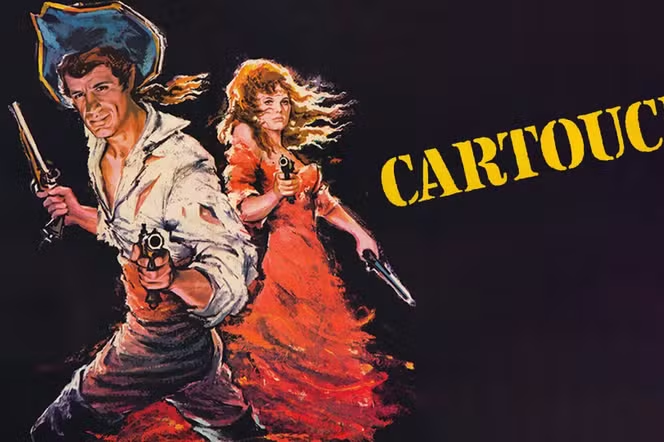radicalthought.org – “Cartouche” is a 1962 French adventure film directed by Philippe de Broca, starring Jean-Paul Belmondo and Claudia Cardinale. Set in 18th-century France, the film combines swashbuckling action with romance and comedy, making it a memorable entry in the genre.
Plot Overview
The film follows the story of Louis de Bourguignon, known as Cartouche, a charismatic and daring highwayman. Disillusioned with the unethical practices of his gang, Cartouche takes leadership and embarks on a series of bold exploits across Paris. Along the way, he encounters love, betrayal, and adventure, all while challenging the authorities and winning the hearts of the public.
Characters and Performances
- Jean-Paul Belmondo as Cartouche: Belmondo’s performance is a highlight, bringing charm and charisma to the role of the legendary bandit.
- Claudia Cardinale as Venus: Cardinale plays Venus, Cartouche’s love interest, who adds depth and emotion to the adventurous narrative.
- Supporting Cast: The film also features strong performances from a talented ensemble cast, adding richness to the story.
Direction and Cinematography
Philippe de Broca’s direction is masterful, blending action and humor seamlessly. The cinematography captures the vibrant essence of 18th-century Paris, with sweeping shots and dynamic action sequences that enhance the film’s adventurous feel.
Themes and Style
“Cartouche” explores themes of loyalty, justice, and love, wrapped in a light-hearted, swashbuckling style. Its playful yet poignant narrative makes it an enduring favorite among fans of classic adventure films.
Reception and Legacy
Upon release, “Cartouche” received positive reviews for its entertaining storyline and engaging performances. It remains a beloved classic in French cinema, showcasing the talents of its iconic cast and crew.
Conclusion
“Cartouche” is a quintessential example of French cinema’s ability to combine action, romance, and comedy in one captivating package. Its enduring appeal lies in its charismatic characters, lively plot, and the timeless charm of its storytelling.
